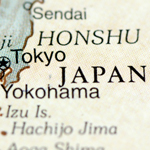Protection Against Radiation?
The terrible tragedies in Japan – earthquake, tsunami, danger from the release of radiation – are heartbreaking. I’m wondering what precautions can safeguard health if the radiation travels beyond Japan.
Andrew Weil, M.D. | March 17, 2011

I’ve been closely following the dreadful events in Japan, and the comments of nuclear and radiation authorities in the United States. The experts view it as unlikely that radiation from the damaged Japanese nuclear reactors will pose a serious health risk elsewhere, even if the situation there worsens. If radioactive particles eventually reach the U.S, the levels will be much too low to be of concern.
I’m aware that many people have been asking their physicians what to do preventively, and that potassium iodide is selling out on the west coast. Potassium iodide is used to protect the thyroid gland from radioactive iodine, which can be released in the air following nuclear accidents and get into water and food. The thyroid concentrates iodine and the radioactive isotope is a known cause of thyroid cancer, even though it has a short half-life and disappears quickly. Saturating the gland with ordinary iodine helps prevent this danger, but the protection lasts only for 24 hours.
You can buy potassium iodide tablets at a drug store to keep on hand in case of nuclear accidents. No prescription is required. Be sure to check the appropriate dosages for you and members of your family (including infants, young children and breastfeeding women) at the website of the U.S. Centers for Disease Control and Prevention (CDC). According to the CDC, a single dose is all you need. Should radioactive iodine remain in the environment for more than 24 hours, another dose might be required. But you shouldn’t take any at all unless and until you know that there is an immediate radiation hazard. Potassium iodide helps safeguard against only one type of radiation product, and it only protects the thyroid. More dangerous is radioactive cesium, a chemical element that is absorbed throughout the body and can remain in organs and tissues much longer. Radioactive cesium can also accumulate in some types of vegetation that domestic animals eat; if so, it can contaminate milk and meat. Fortunately, cesium does not travel well – it is larger and heavier than iodine – so any that’s released is likely to fall in the immediate area. Some escaping from the damaged Japanese reactors might be carried by winds out over the Pacific, where, experts hope, it will drop into the water.
I discussed other preventive strategies with Tieraona Low Dog, M.D., an internationally recognized expert in the fields of integrative medicine, dietary supplements and women’s health. She said that there is reason to believe that taking two to four grams of curcumin, the active compound in turmeric, can help protect a number of body tissues. In addition, reishi and cordyceps mushrooms can protect bone marrow from toxic assaults, and antioxidants can help the body defend itself from radiation damage. Since radioactive particles may be carried by dust, having a HEPA filter in your home would also be a good idea in the event of a nuclear accident that is close enough to be of concern.
Again, for those of us in the U.S., the expert consensus is that radiation leaks in Japan are not in that category. My suggestion is that in this instance, Americans should pay attention not to themselves, but rather to helping the Japanese overcome a truly hazardous situation that may take years or even decades to resolve. The Charity Navigator‘s website has detailed information and charity ratings for those wishing to donate to the Japanese relief efforts.
Andrew Weil, M.D.









